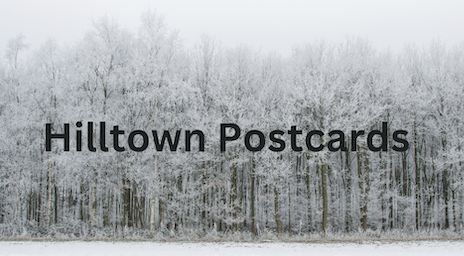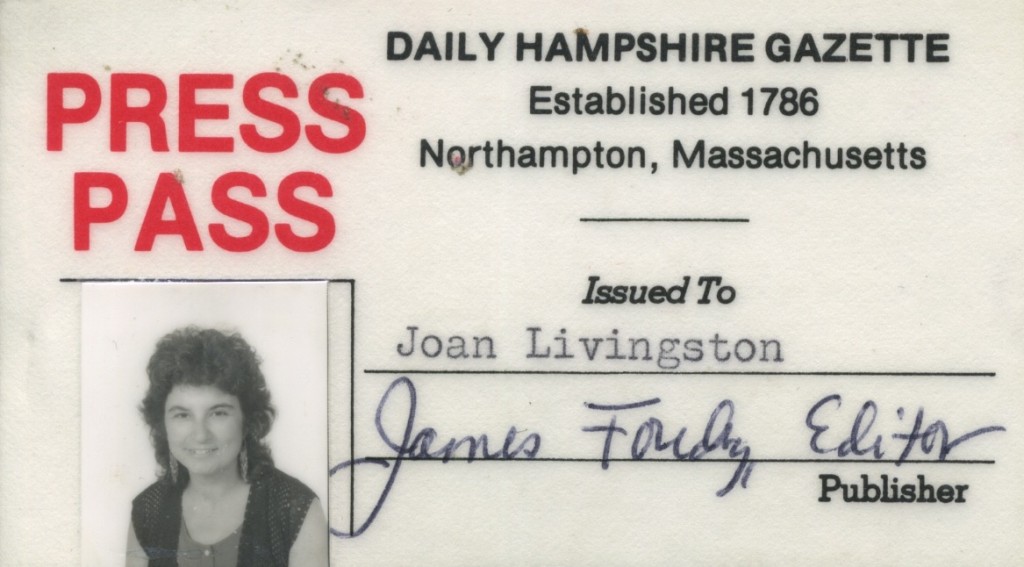It was by chance I became a journalist — a career that lasted 35 years. I saw an ad in the Daily Hampshire Gazette for a correspondent to cover Worthington, the hilltown in Western Massachusetts where I lived. I had never taken a journalism course or worked for a newspaper except for writing a goofy column in my college’s newspaper. But I was a big newspaper reader, so I believed I understood what constitutes a solid news story. And somehow I convinced Mike Evans, the editor overseeing the hilltowns, to hire me.
In those days, the Gazette had freelancers covering the small towns in its coverage area. Often they lived in the town they covered and like me, had no reporting experience. I recall Mike telling me to choose someone in my town and report what that person would want to know. I chose a smart, older woman who lived on Witt Hill Road. It worked.
It was definitely on me to get the story right. After all, most likely I would run into the people I quoted at the town’s only store the next day. But I was up for it.
I figure those early years reporting were the equivalent of a BA in journalism.
That was 1985. We were living in a dumpy house we rented in the Ringville section of town. If we wanted to get ahead and hopefully, have our own home, I needed to bring in an income. Getting paid by the inch wasn’t going to make a whole lot of money, but it would be a start. Oh, I also got the paper delivered free to my home.
I remember the first meeting I covered. The Board of Selectmen, as it was called in those days, met in the town’s elementary school because the student population had dwindled and the town had yet to build an addition onto Town Hall for offices. The board, which consisted of Julia Sharron, Bert Nugent, and Steve Kulik, who later would become a long-serving State Representative, was very welcoming.
When I first started, I had to write my story that night on the typewriter I used in college and the next morning after the kids got on the school bus, I drove it to the newsroom in Northampton, where one of the staff would type my story into the system. Usually, I had the youngest of our then-five kids with me. Zack would bring a box of Matchbox cars and play while I tended to business. I was fascinated by the newsroom’s hustle and bustle during these visits.
Many months later, the paper gave me a Radio Shack laptop that showed seven lines of copy on its screen. That’s all the computer could do, plus send the story electronically over my phone line to the newsroom. I used the laptop many years until I got my own computer.
So what kinds of news did I find? Local government meetings of course. My favorite was the venerable Annual Town Meeting although a Worthington Board of Health meeting about pigs was a close second. Definitely, the most contentious were dog and junkyard hearings. I wrote features about people and the things they did. I had a column. Occasionally, there was breaking news, typically a house fire or accident. Big weather events, winter storms especially, were on my beat.
Eventually, I took on two more towns: Chesterfield and Cummington. I also got big stories to cover like the closing of a nuclear power plant in Rowe, tax-war resisters in Colrain, and a tornado that touched down in Great Barrington. I even went to the White House to interview Tony Lake, who was national security adviser during Bill Clinton’s first term and a Worthington resident.
Eventually, I was hired full-time as the hilltown reporter, then a line and copy editor during my first 21 years at the Gazette. I went on to be editor-in-chief of The Taos News in New Mexico and then came full circle back to Massachusetts to hold that position at the Gazette and its sibling papers, Greenfield Recorder and Athol Daily News. Not bad for a person who never took a journalism course.
As part of these Hilltown Postcards, I will share some of the experiences I had as the Worthington correspondent. I am grateful for that opportunity as it immersed me in the hilltowns more than if I just lived there. I had to listen carefully to what people said and watch what they did. That inspired me to write novels with that setting. Ah, yes, to be continued….


